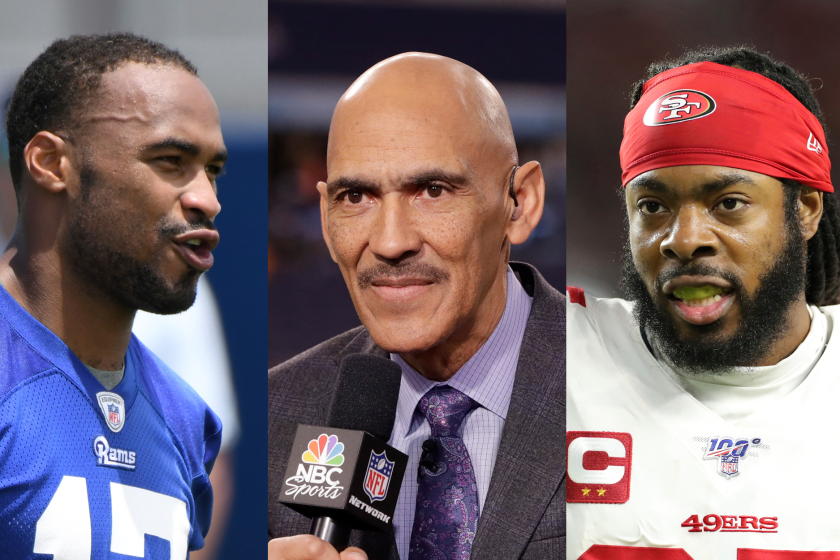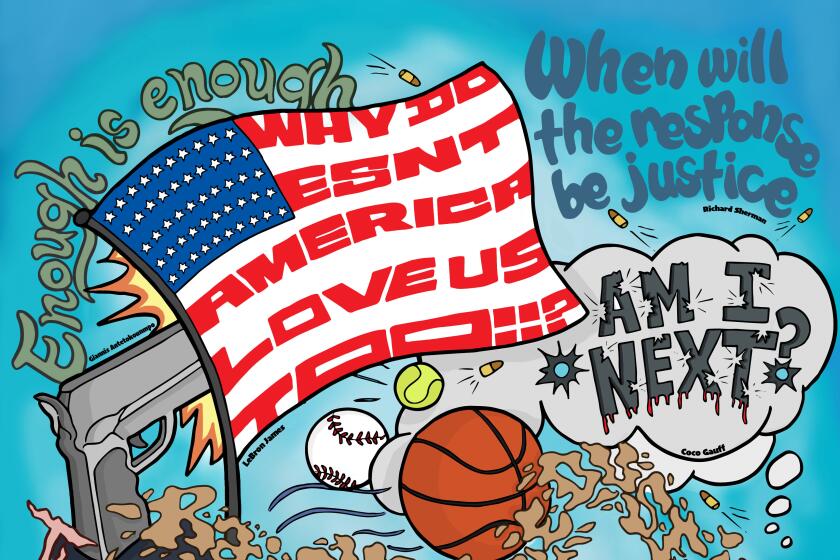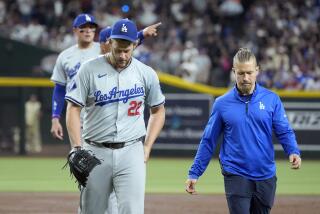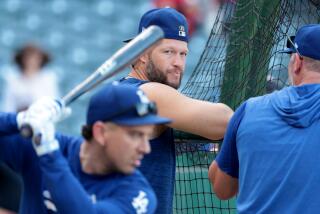Column: Clayton Kershaw elaborates on his Juneteenth message: ‘Silence won’t cut it’
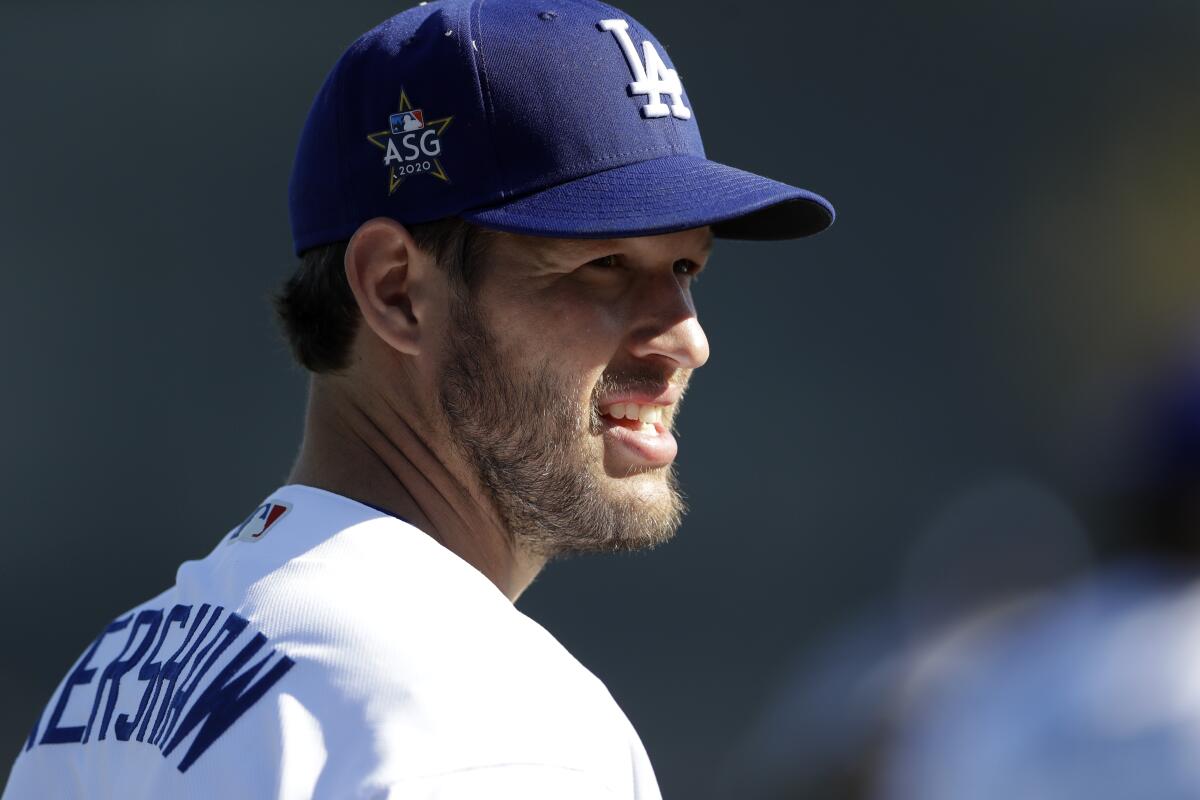
John Carlos and Tommie Smith standing on the podium, arms raised, fists clenched, heads bowed. This was the demonstration the IOC feared. There was talk leading up to the 1968 Olympics in Mexico City about Black athletes boycotting in protest of the racism Stateside. There was some concern that demonstrations during competition could interrupt events. After Smith and Carlos took gold and bronze in the 200 meters, they gave the second-place finisher notice of the protest they had planned for the medal presentation.
Peter Norman, the white man from Australia who captured silver, did the unexpected — he chose to stand not just near them but with them, and donned an Olympic Project for Human Rights badge as a show of solidarity.
This world has always needed more white athletes like Peter Norman. Clayton Kershaw has decided to answer the call. On Thursday the best pitcher of his generation took to social media to proclaim not only that Black lives matter, but that it was his responsibility to help dismantle the systemic racism that for centuries has said otherwise.
Richard Sherman, Tony Dungy and Robert Woods join The Times’ LZ Granderson and Sam Farmer to discuss social justice, racism and the NFL.
“Silence won’t cut it,” he tweeted. “We have to start by saying something and STANDING up for our Black brothers and sisters. I want to listen, I want to learn, I want to do better and be different. I want my kids to be different.”
The Dodgers organization didn’t write this for him nor did the front office ask him to post anything. I checked. Kershaw did this on his own, much in the way Norman acted on his own.
“My whole career, I haven’t been very vocal on different issues because I didn’t feel that social media was the right platform,” he said in a Friday morning interview with The Times. “Words can only do so much. You really need to be action-based. But I spoke with my Black teammates and my Black coaches and they basically told me, ‘Your silence is speaking volumes right now’. That really hit me.”
He vows that the tweet is not a one-off.
“I spoke with my Black teammates and my Black coaches and they basically told me, ‘Your silence is speaking volumes right now’. That really hit me.”
— — Clayton Kershaw
“To be a white person and not say anything, I really felt like more and more that I was a part of the problem. I felt like I needed to say something, to speak out. It’s still just words, so I will follow that up with action.”
To be sure, Kershaw has been a positive change agent throughout his 12-year MLB career. Through his nonprofit organization, Kershaw’s Challenge, and his partnership with Arise Africa, Kershaw has been a consistent pillar of philanthropy, especially on behalf of people of color.
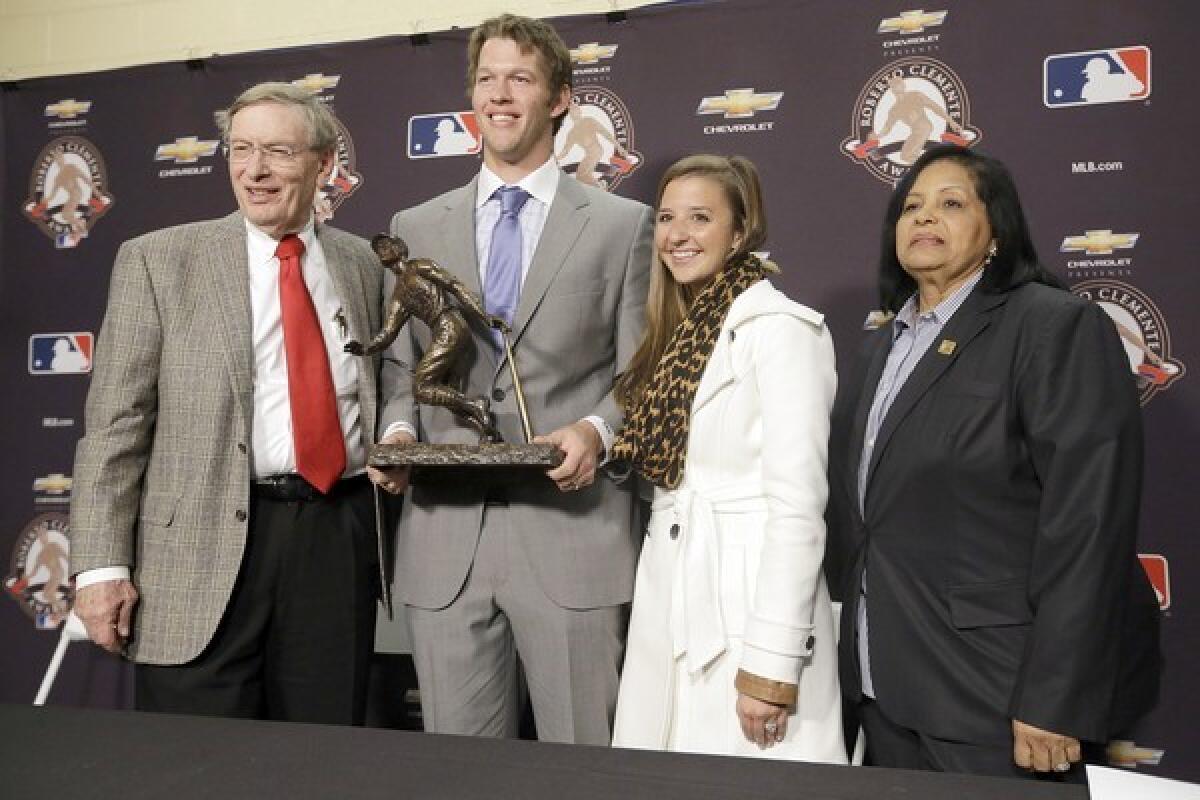
To his point, however, he’s never before done anything close to denouncing systemic racism or encouraging other white athletes to do the same. The way Aaron Rodgers did when he corrected Saints quarterback Drew Brees two weeks ago for misrepresenting the reasons NFL players kneel during the national anthem. The way Chris Long or Josh McCown have used their platforms to attack racial injustice long before Ahmaud Arbery was hunted and killed in Georgia; before Breonna Taylor retreated into her bedroom for the last time; before a cop’s knee pinned George Floyd to the ground by his neck for seven minutes 46 seconds.
Seven minutes 46 seconds.
That’s more than half a quarter of play in the NBA.
That’s nearly two rounds in the home run derby.
That’s 2½ rounds in boxing.
Who watches Floyd calling for his mother in the final, asphyxiated moments of his life and thinks: I’ll sit this one out?
In the wake of the George Floyd killing, athletes and leagues have led with bold words and actions, but will the power of their protest carry over to the games?
A lot of people, and it’s infuriating. And, sadly, par for the course. This week the sports world is falling all over itself letting fans know it’s now acknowledging Juneteenth as if it’s the latest TikTok craze and not a century-and-half-old holiday that they either didn’t previously care to learn about or ignored altogether.
Don’t get me wrong, I applaud the gestures, I just wonder why it took a pandemic, a total sports shutdown, and several horrific deaths captured on smartphones to get league executives to care enough about the liberation of Black people to commemorate it.
“We can’t just sit back,” Kershaw said. “As white athletes or white people in general with platforms, it’s very important that we listen to our Black teammates and Black friends, let them teach us what we can do and more than anything be a voice and try to promote as much change as we can. I know that’s a lot of words still, but for us to see tangible change the first thing we can do is become aware and promote awareness.”
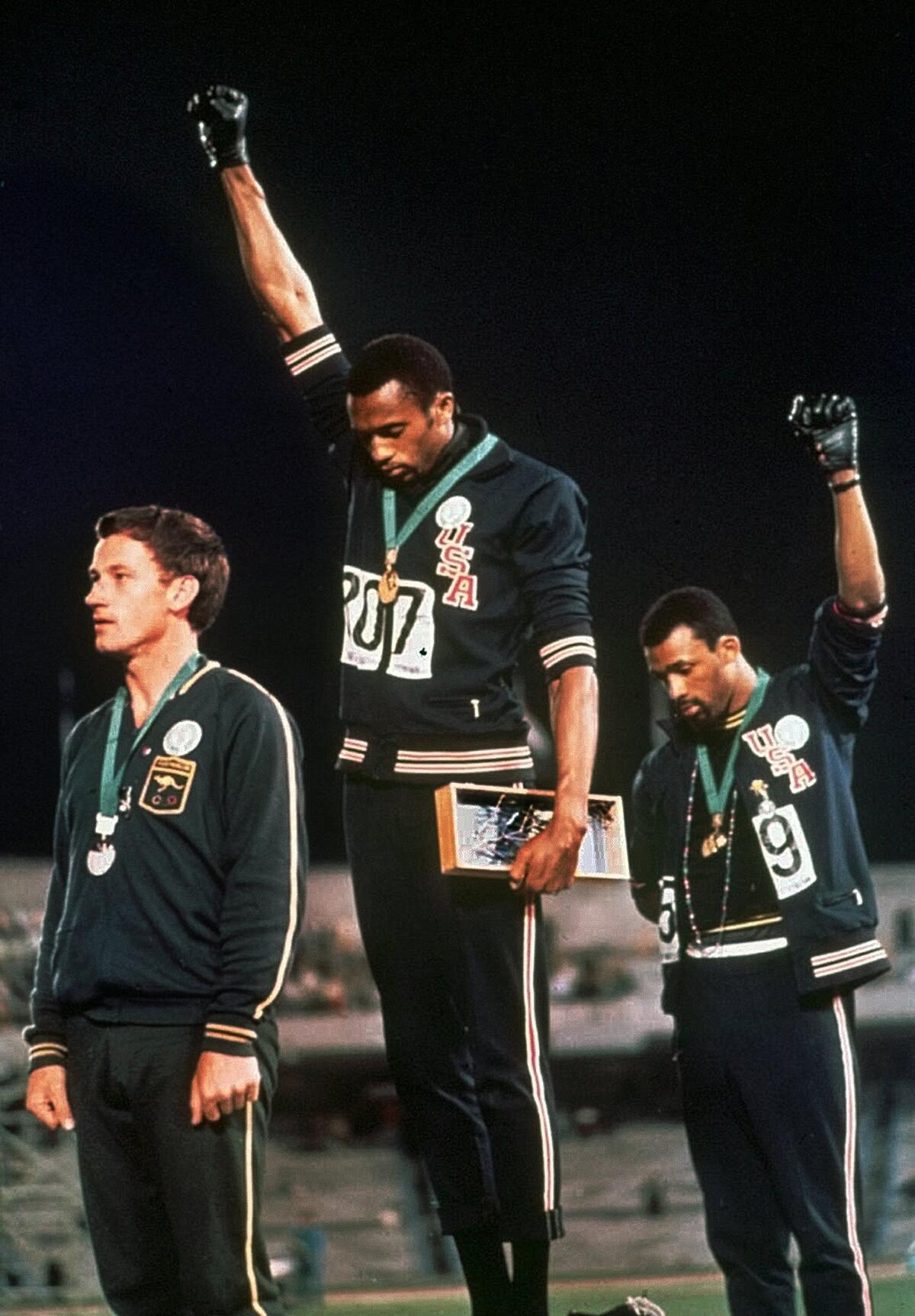
Awareness. Kershaw is originally from Texas, where on June 19, 1865, the final group of slaves were made aware that they had been emancipated 2½ years earlier. Kershaw lamented not knowing about his home state’s place in the story of Juneteenth. Or the 1921 Tulsa Race Massacre. Or a litany of other monumental occurrences or issues related to this country’s racial history.
I do wonder if Kershaw can go home again — or to a home that will receive him the same way — having publicly acknowledged that lives like mine matter. Peter Norman couldn’t. He was called an embarrassment to the country and a traitor to his race. His times were good enough to qualify for the 1972 Olympics but Australia’s officials arbitrarily said they were not, all because he dared to acknowledge the humanity of people who look like John Carlos and Tommie Smith. People who look like Arbery, Taylor and Floyd. LeBron and Mookie. Shaq and Kobe. Kareem and all the beloved, iconic L.A. figures whose Black bodies were able to bring the city so much joy only because their Black bodies survived a system that didn’t care if they lived or died.
This world has always needed more white athletes like Peter Norman. Clayton Kershaw has decided to answer the call.
“I’ve heard a lot of different things that haven’t been taught in school like Juneteenth,” Kershaw said. “I don’t know why these things weren’t taught but I’m going to use my platform to bring awareness and I know the [Dodgers] organization is going to use its platform for good as well.”
Can’t tell you how good it feels knowing players, stars, like Kershaw get it. How many other voices in baseball, or in every sport, will take his cue and acknowledge that it doesn’t fall solely on Black athletes to be the only faces using their platforms to fight racial injustice?
Remember, Peter Norman didn’t just put on a pin in 1968, he chose a side. Clayton Kershaw has chosen a side.
More to Read
Go beyond the scoreboard
Get the latest on L.A.'s teams in the daily Sports Report newsletter.
You may occasionally receive promotional content from the Los Angeles Times.
